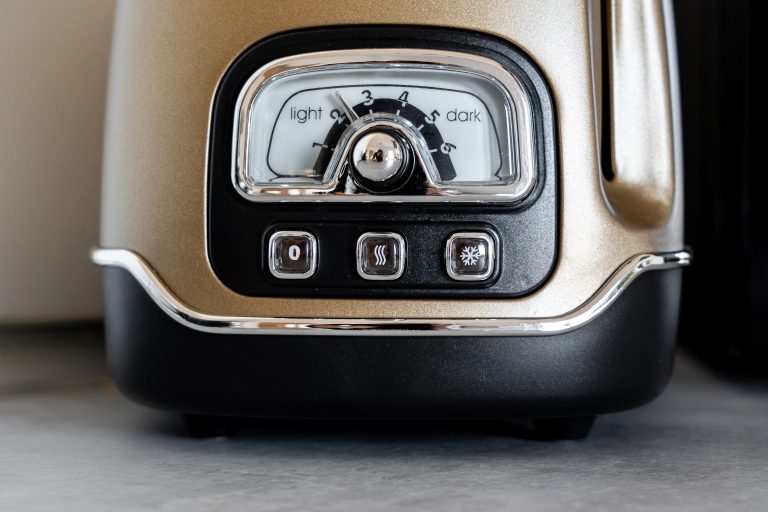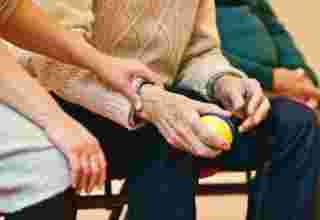
British families have been dusting down old bread makers, sandwich toasters and food processors as they spend 14 hours extra a week cooking up a storm.
A study of 2,000 families found 58 per cent are finding new ways of being inventive in the kitchen, by turning to the likes of ice cream makers, smoothie makers, and pizza ovens as a way of creating entertainment.
Other gadgets relied on for family fun include air fryers, waffle machines and sandwich makers.
It also emerged seven in 10 mums and dads are spending more time baking and making with little ones than ever before.
Families have been experimenting in the kitchen together by baking cakes (54 per cent), homemade pizzas (46 per cent) and desserts (36 per cent).
Toasties have also become a regular lunchtime treat in 39 per cent of households, while pancakes have featured heavily for 50 per cent.
But the increased use of kitchen gadgets may result in a spike in energy costs for some households, with 84 per cent of adults admitting they have no idea how much energy their culinary tech items use.
More than half rarely factor in running costs when buying new gadgets for the kitchen, and 54 per cent don’t bother to check the appliances’ energy rating factor.
A spokesman for Utilita, the Pay-As-You-Go energy company that carried out the study as part of its #EnergyHigh5 campaign said: “A renewed focus on cooking has undoubtedly helped to keep people’s spirits up during the pandemic, but it’s important that we all consider what these gastro gadgets are costing in terms of the impact on our pockets, and the planet.
“For items that are only on for a few minutes, energy consumption shouldn’t be too much of an issue.
“It’s the items that stay out on the worktop to be used more regularly, or for longer periods, such as coffee machines, slow cookers and air fryers – mainly those that produce heat or refrigeration – that could be costing more than we expect over a year.
“But the good news is that it is so easy to monitor real-time energy usage today, giving households a chance to limit their gadget usage, or offset the extra spend by saving elsewhere in the house.”
The study found for 51 per cent of families, eating together during the past 12 months has become the main form of evening entertainment, and four in 10 have turned to cooking as a way of bonding together.
One third have simply been looking for ways to keep the children busy, which means items like the food processor and smoothie maker have been getting used more than usual.
And recipe books have also made a reappearance in 57 per cent of family kitchens.
Perhaps unsurprisingly, six in 10 families polled via OnePoll have been eating more food than normal over the past year.
The spokesman for Utilita added: “Just this week, we welcomed news that the Government plans to simplify energy efficiency labels with regulations coming into force this summer.
“This improvement will help consumers to make more informed choices to reduce their energy consumption and bills, which is great news.
TOP 10 TIPS TO SAVE MONEY ON KITCHEN ENERGY BILLS
1. Pay attention to the energy consumption (wattage) of items that generate heat, as these will cost the most to run
2. After turning the oven off, leave the door open to heat up the room
3. Invest in a slow cooker for as little as £18 and save money by avoiding using the energy hungry oven.
4. Cooking food that has come straight out of the fridge takes longer because it’s colder. Simply take it out of the fridge and leave it on the side at room temperature for 30 minutes or so and it will cook much quicker.
5. Overfilling the kettle is the main way we waste energy – only boil enough water for your requirements.
6. Switch off or unplug microwaves, dishwashers, washing machines and electric ovens as they will continue to use standby energy.
7. Grab your kitchen appliance manuals and choose the eco settings – more dishwashers can be used in eco mode and will save up to 50 per cent of the energy required for each load.
8. Don’t choose inferior, cheaper washing-up liquids – the better the degreasing agent, the less hot water you’ll use to wash items. Cheaper alternatives are often a false economy as they are less effective.
9. Fill your freezer to capacity and it will run more efficiently – it takes more energy to power a partially empty freezer compared to one that is full.
10. Using lids on pots when cooking will stop heat from escaping, and food will cook quicker, requiring less energy.
ENDS


















